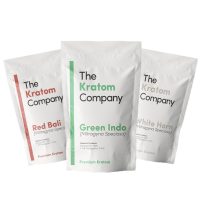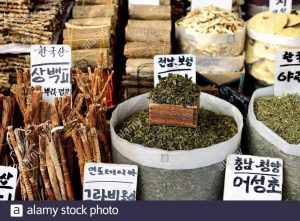Home » Can You Buy Kratom In North Carolina? What You Need to Know

Can You Buy Kratom In North Carolina? What You Need to Know
- Anthony Dent, Founding Member
- No Comments
North Carolina, a state celebrated for its picturesque Appalachian Mountains and serene Atlantic beaches, also harbors a unique aspect in its openness to natural botanical plants like kratom. Steeped in American history and cultural richness, North Carolina has become a focal point for kratom enthusiasts. As such, discussions around kratom in North Carolina have gained momentum, intertwining with the state’s legislative narrative. The evolving legal landscape around kratom reflects the state’s progressive approach to embracing natural wellness choices.
Amidst this backdrop, the question of whether or not kratom is legal in North Carolina has been a subject of legal discussions, reflecting a broader national conversation about the plant. North Carolina’s stance on kratom resonates with a growing trend across the United States, where states are grappling with how to regulate such natural substances. This state, known for its balanced approach to governance, mirrors this in its handling of kratom, making it an interesting case study in the larger context of kratom’s legal status in the US.
Kratom Legality in the US
Before we discuss kratom in North Carolina, it’s important to look into kratom’s legality in the US. This debate is as diverse as the country itself, with some states embracing it while others enforce strict prohibitions. At the federal level, kratom remains legal despite past attempts by agencies like the FDA and DEA to classify it as a controlled substance. The American Kratom Association (AKA) has been instrumental in advocating for the responsible use and sale of kratom, emphasizing its potential benefits and campaigning against misinformation. The AKA’s efforts have been vital in keeping kratom accessible to adults across many states.
The World Health Organization (WHO) has also reviewed kratom, adding an international dimension to the discussion. In the US, the debate often centers around the balance between public health concerns and individual freedoms. As kratom enthusiasts and advocacy groups continue to share positive experiences and push for sensible regulations, the future of kratom in North Carolina and across the nation seems geared towards a regulated but accessible market.
Current Legislative Threat to Kratom in North Carolina
The introduction of House Bill 563, which proposes significant changes to kratom regulation, represents a critical moment for the kratom community in North Carolina. While initially aimed at regulating and ensuring the safety of kratom products, recent amendments in the Senate seek to reclassify kratom as a controlled substance. This shift not only threatens to eliminate kratom’s legal status but also disregards its potential benefits for many users. Understanding these legislative nuances is crucial for those advocating to safeguard kratom’s availability and for forming effective strategies to counter a potential kratom ban in North Carolina.
Is Kratom Legal in North Carolina?
Yes, kratom enthusiasts throughout the state can buy, sell, and use kratom in North Carolina legally, but with some age restrictions. However, the journey has not been straightforward. The current legislative measures, particularly House Bill 563, are re-opening debates and legislative shifts similar to past challenges faced by the kratom community. The proposal to ban kratom in 2016 through Senate Bill 830 was a critical moment, as it brought to light the complexities surrounding kratom’s impact and its perceived risks. The bill suggested placing kratom on the controlled substances list.
However, this proposal was met with strong opposition from kratom supporters, who argued against the bill’s rationale, pointing out the plant’s properties. The success of kratom advocates in overturning the proposed ban marked a significant victory for kratom in North Carolina. It highlighted the power of informed public opinion and the importance of accurate information in shaping policy. The passage of Bill HB747, instead of a ban, established age restrictions for kratom, reflecting a more nuanced approach to its regulation. This legislative outcome underscored the state’s willingness to listen to its constituents and adapt its laws accordingly.
What Potential KCPA Regulation in North Carolina Means
Based on the latest reports, a KCPA bill has been submitted to the Legislative Counsel for drafting in North Carolina. What does this mean? The introduction of the Kratom Consumer Protection Act (KCPA) is a pivotal development in the state’s approach to kratom regulation. This act aims to standardize and monitor kratom products, ensuring consumer safety and maintaining quality standards. By regulating aspects such as manufacturing, distribution, and sale, the KCPA seeks to establish a safe and responsible kratom market in North Carolina and beyond. This act also sets guidelines for labeling and testing kratom products, which is crucial for consumer transparency and trust.
The KCPA’s implementation in North Carolina would mean a significant step forward in establishing a regulated kratom industry and obviously help answer the question, “is kratom legal in North Carolina?” It would address the concerns of both consumers and policymakers, ensuring that kratom remains accessible while safeguarding public health. The act’s focus on fines, penalties, and age limits also shows a commitment to responsible use. With the KCPA, North Carolina could set a precedent for other states that haven’t regulated kratom, demonstrating how to effectively balance consumer freedom with regulatory oversight.
The Future Legal Landscape of Kratom in North Carolina
Considering the current legal climate, the future of kratom in NC appears cautiously optimistic. However, with the potential implications of House Bill 563, staying informed and engaged in advocacy is more important than ever for kratom supporters. There’s a growing recognition of the need for balanced regulation rather than outright prohibition. The state’s approach, marked by open-mindedness and responsiveness to public opinion, suggests a willingness to adapt and evolve its policies on kratom as new information and research become available. This adaptive strategy is crucial in managing the complex dynamics surrounding kratom and its varied potential uses.
While the legal status of kratom in North Carolina remains stable for now, pending the decision on the potential ban, it’s essential to stay informed about potential changes. Advocacy and public awareness will continue to play critical roles in shaping kratom’s future in the state. The involvement of organizations like the AKA and the informed participation of kratom enthusiasts and supporters can help ensure that future policies are fair, reasonable, and rooted in a deep understanding of kratom’s impact on individuals and communities.
What to Keep in Mind When Buying Kratom
When looking to purchase kratom in North Carolina, it’s vital to consider several factors to ensure a safe and legal transaction. First and foremost, buyers should verify the age restriction compliance, as selling to minors is prohibited. Additionally, it’s crucial to source kratom from credible vendors who adhere to high standards of quality and safety. This includes checking for safety-assured products, which can guarantee the absence of harmful contaminants and the presence of authentic kratom.
Additionally, be sure to actively monitor any legislative updates regarding kratom’s legal status to ensure full compliance and to positively advocate for kratom’s continued availability. Awareness of the local laws and regulations surrounding kratom in NC is also essential in ensuring that kratom is legal in North Carolina and remains so. By staying informed, individuals can ensure they’re acting within the legal framework and contributing to a responsible kratom community.
Tips on How to Safely Buy Kratom in North Carolina
 To safely purchase kratom in North Carolina, consider these additional tips:
To safely purchase kratom in North Carolina, consider these additional tips:
- Research extensively: Spend time understanding the different strains and their effects to make an informed choice.
- Seek recommendations: Consult with experienced kratom enthusiasts or join online forums for advice on reliable vendors and product quality.
- Check for product authenticity and safety: Prefer vendors who ethically source, sustainably harvest, and safely package their kratom products.
- Be wary of unusually low prices: While affordability is important, extremely low prices can be a red flag for poor quality or counterfeit products.
Learn More at The Kratom Company
Now that you know that kratom is legal in North Carolina, at least for now, pending the Senate decision on the potential ban, it’s time to learn more about kratom. At The Kratom Company, we distinguish ourselves through our premium quality products and commitment to educating consumers. When you buy kratom online from us you’re choosing a partner that values customer satisfaction and informed choice. Our dedication to providing a wide selection of kratom powders, capsules, and extracts makes us an ideal choice for anyone seeking a reliable and responsible kratom experience in North Carolina. Explore our kratom blog to learn more.
Featured Products
-
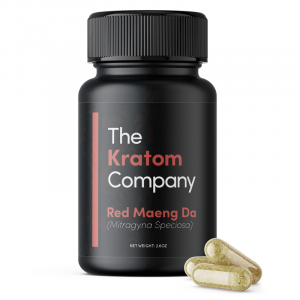 From $24.00Select options This product has multiple variants. The options may be chosen on the product page
From $24.00Select options This product has multiple variants. The options may be chosen on the product page -
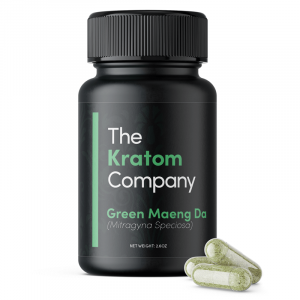 From $24.00Select options This product has multiple variants. The options may be chosen on the product page
From $24.00Select options This product has multiple variants. The options may be chosen on the product page -
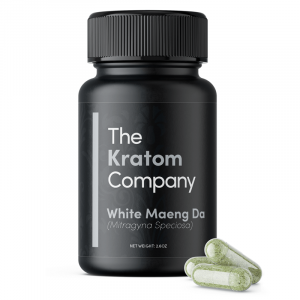 From $24.00Select options This product has multiple variants. The options may be chosen on the product page
From $24.00Select options This product has multiple variants. The options may be chosen on the product page
Explore More Posts
Product Search
Featured Products
-
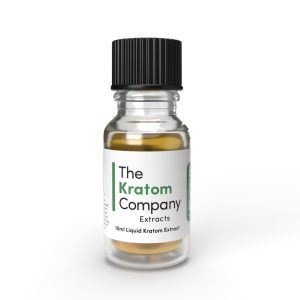 Pure Kratom Liquid Extract
Rated 4.72 out of 5From $20.00
Pure Kratom Liquid Extract
Rated 4.72 out of 5From $20.00 -
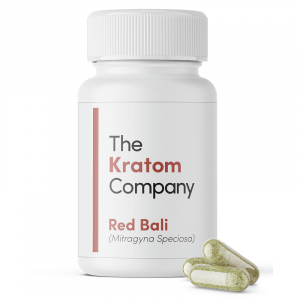 Red Vein Bali Kratom Capsules
Rated 4.70 out of 5From $24.00
Red Vein Bali Kratom Capsules
Rated 4.70 out of 5From $24.00 -
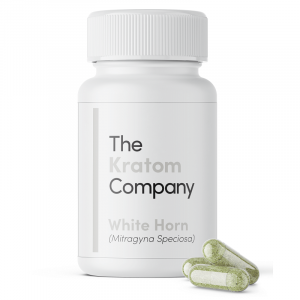 White Horn Kratom Capsules
Rated 4.88 out of 5From $24.00
White Horn Kratom Capsules
Rated 4.88 out of 5From $24.00
Follow Us
Strains
Blogs
NEWSLETTER
Sign up for our newsletter!

These statements and products presented on this website have not been evaluated by the Food and Drug Administration FDA. The products mentioned on this website are not intended to diagnose, prevent, treat or cure any diseases or health conditions. Therefore any information on this website is presented solely as the opinions of their respective authors who do not claim in any way shape or form to be medical professionals providing medical advice. The KRTM Company and its owners or employees cannot be held responsible for, and will not be liable for the inaccuracy or application of any information whatsoever herein provided. By purchasing our products you agree that you are aware and in compliance with your local county, state, or federal regulations. Must be 21 years or older to purchase Kratom. The US FDA has not approved kratom as a dietary supplement. We do not ship to the following states, cities and counties in the US where Kratom is banned: Alabama, Arkansas, Indiana, Rhode Island, Vermont, Wisconsin, Sarasota County, FL, Union County, MS, Denver, CO, San Diego, CA, and Jerseyville, IL.

